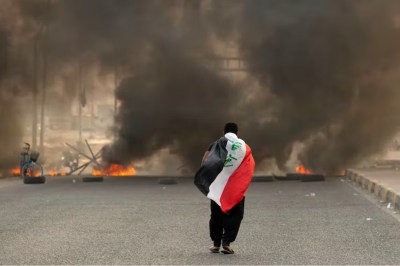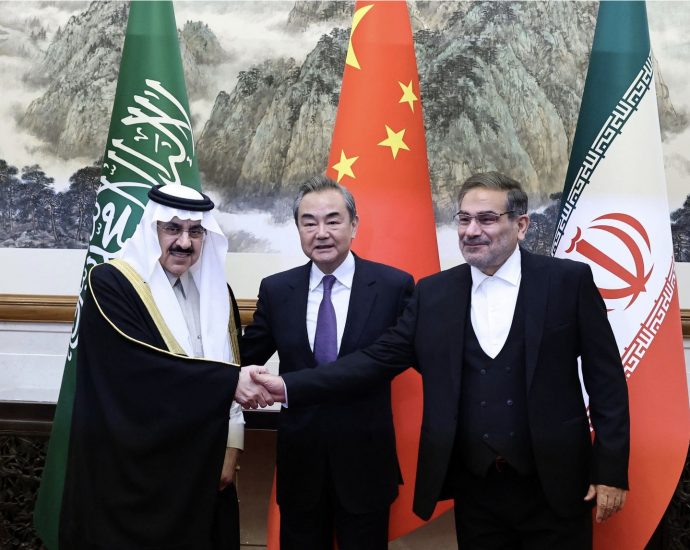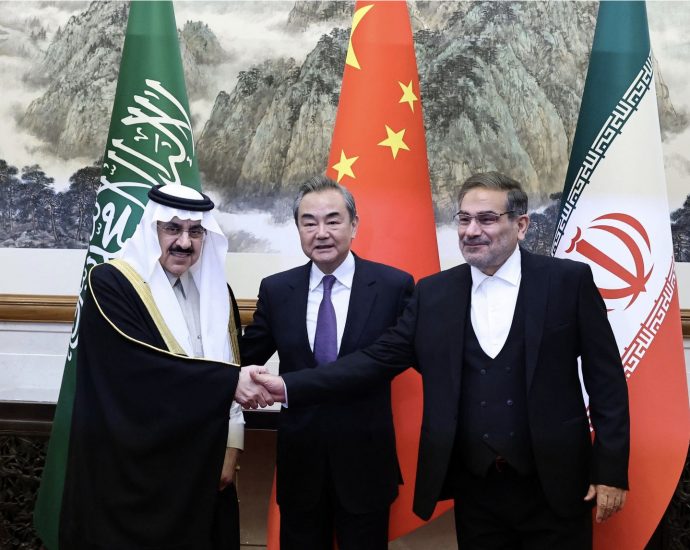Twenty years of failed US democracy promotion in Iraq

President George W Bush and his administration put forward a variety of reasons to justify the 2003 invasion of Iraq. In the months before the US invasion, Bush said the looming conflict was about eradicating terrorism and seizing weapons of mass destruction – but also because of a “freedom deficit” in the Middle East, a […]Continue Reading
Iran-Saudi deal showcases Xi’s alternative world order

Diplomats and analysts around the world are still trying to decipher China’s stunning diplomatic coup in brokering a peace deal between Saudi Arabia and Iran. Other than the emergence of China with a new and unprecedented role as peacemaker in the Middle East, the most apparent takeaway for the Americans is that the United States […]Continue Reading
Divergent perceptions of China impact geopolitics

Countries in the Middle East view China’s growing power and influence in starkly different terms from the US and many of its Western allies. These alternative strategic perceptions are likely to have a decisive impact on geopolitics in the years to come. In some ways, they already are. Western perceptions align US policymakers on both […]Continue Reading
Menindee: Australia begins mass fish death clean-up
Authorities are working out what to do with millions of rotting fish.Continue Reading
‘Floating toilets’ help Cambodia’s lake-dwelling poor
SIEM REAP: Pointing to the murky waters of the Tonle Sap, Si Vorn fights back tears as she recalls her four-year-old daughter dying from diarrhoea after playing in the polluted lake. Her family of 12 is among 100,000 people living in floating houses on Cambodia’s vast inland waterway, and whileContinue Reading
Steel melting plant closed, hazardous isotope detected
PRACHIN BURI: Local authorities closed a steel melting plant in tambon Hat Nang Kaeo of Kabin Buri district on Sunday after they detected radioactive caesium-137 there.Continue Reading
Southeast Asia’s power dynamic is not quite “Game of Thrones”
As jostling superpowers U.S. and China continue to maintain global influence, Southeast Asia’s combined power could put the region in a prime position to rise to the top rungs of political potential, as Australian think tank Lowy Institute’s latest Asia Power Index suggests
The post Southeast Asia’s power dynamic is not quite “Game of Thrones” appeared first on Southeast Asia Globe.
Credit Suisse operations in Singapore uninterrupted by UBS takeover deal: MAS
Customers of Credit Suisse will continue to have full access to their accounts.Continue Reading
Indian High Commission: Man arrested after London protest
Two security guards were injured after a crowd gathered to protest outside the building in London.Continue Reading
Safety pin: A tiny tool Indian women use to fight sexual harassment
Almost every day women in India face sexual harassment in public places. So how do they deal with it?Continue Reading










